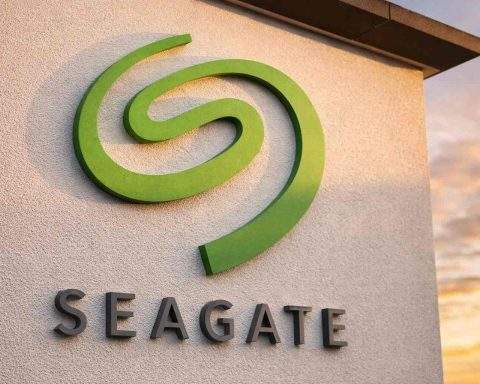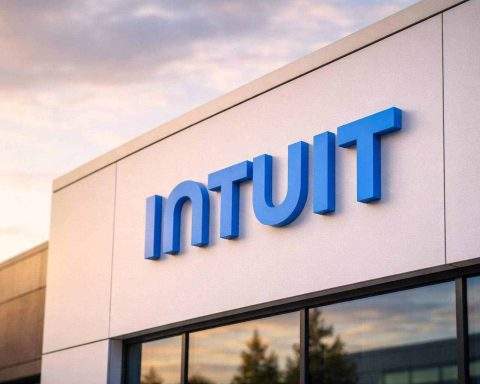London – 25 November 2025
On the eve of Rachel Reeves’ Autumn Budget, pensioners are at the centre of a growing political and financial storm.
New modelling suggests up to 10 million UK pensioners could be paying income tax by 2030 if the Chancellor extends the freeze on income tax thresholds — a policy already being branded a “stealth tax” on retirees.1
At the same time, analysis shows that many of those same pensioners are on course to hand back their £200 Winter Fuel Payment through extra income tax, as a frozen tax-free personal allowance collides with an inflation-busting state pension protected by the triple lock.2
Below is a guide to what’s happening, why it matters, and what it could mean for your finances.
What is Rachel Reeves expected to do in the 2025 Autumn Budget?
Officially, the Chancellor will not unveil her plans until tomorrow (26 November). But a series of briefings and leaks — including coverage in The Times, Financial Times, The Sun and London’s Standard — all point in the same direction: Reeves is likely to extend the freeze on income tax thresholds beyond 2028, rather than raise headline income tax or National Insurance rates.3
Key measures being widely trailed ahead of Budget day include:4
- Extending the income tax threshold freeze by at least two years, potentially to 2029/30
- Keeping the main personal allowance at £12,570 and the higher-rate threshold at £50,270 in cash terms
- Curbing pension “salary sacrifice” schemes, with reports of a cap on the amount that can be paid in without National Insurance being due
- Cutting the annual cash ISA allowance from £20,000 to around £12,000
- A wider package of tax rises on wealth and assets (such as a levy on homes worth over £2m)
Freezing thresholds lets the Chancellor say she is not raising tax rates, while still pulling millions more people into paying tax as wages and pensions rise — the classic effect known as fiscal drag. Independent analysis suggests that keeping thresholds frozen until 2030 could raise around £50bn a year by the end of the decade.5
How the income tax threshold freeze works – and why it hits pensioners
The key numbers in this story are simple:
- Personal allowance (what you can earn before income tax): £12,570
- Higher-rate threshold (when 40% tax starts): £50,270
- Both have been frozen in cash terms since 2021 and are currently scheduled to stay frozen until April 2028.6
At the same time, the state pension keeps rising under the triple lock, which guarantees increases by the highest of inflation, earnings growth or 2.5%. For 2025/26 the full new state pension is £230.25 a week (about £11,973 a year).7
Because the allowance is stuck while pensions rise, more older people are quietly tipped into the tax net every year.
The numbers so far
Modelling by pension consultancy LCP (former pensions minister Sir Steve Webb) and other analysts paints a stark picture:1
- In 2021/22, when the freeze began, about 6.7 million pensioners paid income tax.
- By 2025/26, that has climbed to around 8.7 million – roughly two million more than four years ago.
- HMRC figures suggest 420,000 extra pensioners will join the tax-paying ranks this tax year alone.
- Around 1 million pensioners already pay 40% tax or more, double the number four years ago.
If Reeves extends the freeze for a further two years in the Budget:
- At least an extra 500,000 state pensioners would be dragged into income tax, taking the total to about 9.3 million by 2027/28 – roughly three-quarters of all pensioners.1
- Under plausible inflation and wage scenarios, that figure could “easily” reach 10 million by 2030.8
In other words, a policy that began under the previous Conservative government is now set to be extended by Labour, reshaping who pays tax in retirement without ever touching the basic or higher tax rates.
Triple lock vs frozen thresholds: why your state pension could become taxable
Quilter, a major wealth management firm, has crunched the numbers on what happens if the triple lock continues AND the personal allowance stays at £12,570 until 2029/30.2
Their projections for the full new state pension (per government rules for HMRC’s calculations) look like this:
- 2026/27: £241.30/week → annual taxable amount around £12,537 – just under the allowance (no income tax)
- 2027/28: £248.55/week → taxable amount around £12,917 → £69 income tax at 20%
- 2028/29: £254.75/week → taxable amount around £13,241 → £134 income tax
- 2029/30: £261.10/week → taxable amount around £13,571 → £200.17 income tax
So by 2029/30, someone whose only income is the full new state pension would face a tax bill of about £200 – almost exactly the value of the standard £200 Winter Fuel Payment.2
That’s why Quilter warns that many “will pay back their £200 Winter Fuel Payment in income tax” if Reeves extends the freeze.
Winter Fuel Payment 2025: targeted support that can be clawed back
The Winter Fuel Payment (WFP) has also quietly been transformed this year.
New rules from 2025/26
In June, the government announced that from this winter:9
- All pensioners in England and Wales with taxable incomes of £35,000 or below will receive a Winter Fuel Payment:
- £200 per household (or per eligible individual in some cases)
- £300 where someone in the household is aged 80 or over
- This expansion means around 9 million pensioners – just over three-quarters of all pensioners – will get the payment.
- About 2 million higher‑income pensioners with incomes above £35,000 will still receive the money automatically but HMRC will take it back through the tax system.
The official guidance is blunt: if your income is over £35,000, HMRC will recover your Winter Fuel Payment by either:10
- Changing your tax code for 2026/27, or
- Adding the amount to your 2025/26 Self Assessment bill.
Pensioners can also opt out of receiving the payment in the first place if they prefer not to have it clawed back.9
Why headlines say households will “pay back £200”
Building on the Quilter analysis, The Sun reports that households on the full new state pension could effectively see their £200 Winter Fuel Payment wiped out by extra income tax by the end of the decade — even if their total income is below £35,000 and they’re technically entitled to keep the payment.11
Here’s the logic:
- Winter Fuel Payment: £200 (for most pensioner households)
- Extra income tax on the state pension alone by 2029/30 under a prolonged freeze: £200.17
- Net effect: the benefit designed to help with heating bills is effectively cancelled out by the tax system.
Quilter’s retirement specialist Adam Cole argues this would leave pensioners in a “perverse” position — paying tax at levels that erase a benefit aimed at the most vulnerable — and says extending the threshold freeze is now far from stealthy.2
Who will be hit hardest?
Different groups are likely to feel the squeeze in different ways.
1. Pensioners on modest incomes
- Those on the full new state pension with little or no private income will start to pay income tax from 2027/28 onwards, assuming the freeze is extended.2
- Pensioners with small workplace or personal pensions on top of the state pension are more likely to move further into the tax net.
2. Pensioners with higher incomes
- Around 2 million pensioners with incomes above £35,000 will see their Winter Fuel Payment reclaimed automatically by HMRC.9
- Many in this group are already paying higher‑rate (40%) income tax and will continue to be affected by frozen thresholds at the 40% and 45% bands.
3. Working‑age earners approaching retirement
- LCP’s research suggests the freeze could pull 9 million people into the 40% tax band by 2030, not just pensioners.12
- People in their 50s and early 60s risk entering retirement with less disposable income after tax, while also facing rising costs.
4. London and the South East
Live coverage from The Standard notes that an extended freeze could see around 2.6 million people in London and the South East either start paying income tax for the first time or be dragged into higher rates.4
Given higher average wages, many in these regions will be particularly sensitive to frozen thresholds.
Why are experts calling this a “stealth tax”?
Several think tanks, accountants and industry bodies have criticised the strategy of relying on threshold freezes to raise revenue:
- The Credit Protection Association highlights analysis that threshold freezes could push 10 million pensioners into income tax and 9 million workers into the 40% band by 2030, while raising about £50bn a year by the end of the decade.12
- LCP’s Steve Webb points to a “surge” in the number of pensioners paying tax, warning that extending the freeze will drag at least half a million more into the tax net.1
- Pensions industry voices quoted in Pensions Age urge Reeves to take a “balanced approach” and warn that repeated changes risk undermining trust in the pensions system altogether.8
The Financial Times has framed the issue as central to understanding the 2025 Budget, arguing that prolonging the threshold freeze allows Labour to stick to its pledge not to raise basic income tax rates while still increasing the tax take from “working people” and retirees.3
What this could mean for you: key questions answered
Important: The following is general information only and is not personal tax or financial advice. Always speak to HMRC or a regulated adviser about your own situation.
Will my state pension be taxed?
You may pay income tax on your state pension if:
- Your total taxable income (state pension + private/work pensions + other income) is above £12,570, and
- The income tax threshold freeze continues as expected.
Even if your only income is the full new state pension, current projections suggest you could start paying tax from 2027/28, with the bill rising over time if thresholds remain frozen.2
Do I need to file a tax return?
Most pensioners will not need to complete a Self Assessment tax return:
- If you have a workplace or private pension, tax is usually collected via your PAYE tax code.
- If you only receive the state pension (and perhaps a small amount of interest or savings income), HMRC can bill you via a “simple assessment”, based on information it already holds.1
You usually only need to file a Self Assessment return if you have more complex income (for example, significant rental or self‑employed income).
Could I have to repay my Winter Fuel Payment?
Yes, if your income is over £35,000:
- HMRC will take back the full Winter Fuel Payment by changing your tax code or adding it to your Self Assessment bill.10
If your income is below £35,000, you should not have to repay the WFP itself — but you could still end up paying extra income tax on your state pension which, in practice, may cancel out much of the benefit by the end of the decade.2
What can pensioners do now?
Some practical steps to consider (again, not advice, just general options people are discussing):
- Check your tax code – make sure HMRC has the correct information on all your pensions and income.6
- Review your income mix – if you have ISA savings, withdrawals from ISAs don’t count as taxable income.
- Claim any extra allowances you may be entitled to (for example, Marriage Allowance or Blind Person’s Allowance).6
- Talk to a regulated financial adviser if you have significant pension savings and are unsure how to structure withdrawals tax‑efficiently.
- Watch the Budget closely – the detail on any threshold freezes, salary sacrifice caps and ISA changes will matter a lot for retirement planning.
The politics: pensions, promises and “retirement tax”
The threshold freeze leaves Rachel Reeves walking a tightrope:
- Politically, she can say she is keeping Labour’s manifesto promise not to raise the basic rate of income tax, while still raising tens of billions in extra revenue.3
- Economically, she faces weaker growth forecasts, a sizeable fiscal hole and higher‑than‑expected welfare spending after U‑turns on disability and Winter Fuel Payment cuts.13
- Socially, critics warn that persisting with deep, long‑running freezes risks hardening perceptions of a de‑facto “retirement tax” on pensioners who never saw themselves as high earners.
On 25 November, with less than 24 hours to go before the red Budget box appears outside 11 Downing Street, one thing is already clear: pensioners and older workers will be among those watching most anxiously as Rachel Reeves stands up in the Commons tomorrow.






